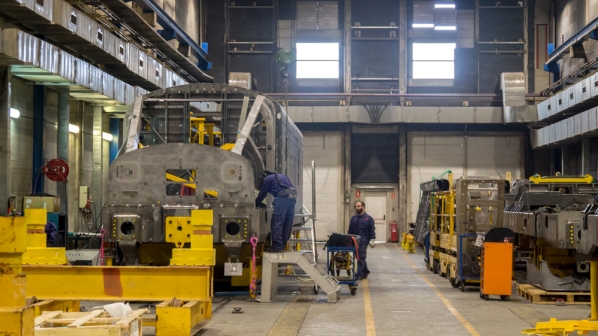The company registered an adjusted Ebitda of €14.8m in the quarter, steady compared with the same period last year. Adjusted Ebitda margins fell to 13.1%, reflecting the “extraordinary situation caused by the current economic context.”
Adjusted net profit reached €5.3m in the quarter, down from €7.5m in the same period of 2019.
SWEDEN: National operator SJ’s sales plummeted during the last two weeks of the quarter, resulting in a negative operating profit of SKr -72m ($US -7.3m) despite a strong start to the quarter.
Up until mid-March, SJ recorded some of its strongest weeks ever. Passenger numbers over January and February were up by 9% compared with the same period last year. However, measures introduced to control the spread of coronavirus saw travel “collapse,” resulting in an overall decrease of -4%.
“In an extremely short time, we have lost most of our ticket revenue,” says SJ CEO, Ms Madeleine Raukas. “Since mid-March, SJ’s management and board have been fully focused on the rapid event development and based on a number of possible scenarios have developed action plans and decided on measures to adapt the business to the current market situation.”
Net sales over the quarter amounted to SKr 1.9bn, down from Krona 2bn in 2019. Profit for the quarter amounted to SKr 101m, down from Krona 105m.
GERMANY: Orders received by Vossloh increased to €291.9m in the first quarter of 2020, compared with €252.5m in the same period last year. Sales were €182.9m, up from €177.5m in 2019, taking into account the sale of Vossloh’s business in the United States.
The book-to-bill ratio increased to 1.6 in the quarter. Ebit improved significantly to €16.5m after a negative Ebit of -€0.6m in same the period in 2019. This was due to operating improvements, along with a €15.6m gain recognised in profit and loss resulting from a business combination achieved in stages of a joint venture in China.
The Ebit margin increased to 9%, up from 0.3%. Ebitda increased to €28.8m, up from €12.2m.
BELGIUM: Passenger operator Belgian National Railways (SNCB) recorded a 2% increase in operating income to €2.61bn in 2019. Operating expenses amounted to €2.53bn, including the costs associated with a restructuring of the company and the migration of its IT systems.

Recurring Ebitda reached €85.3m due to a 3.9% increase in passenger numbers, while the average unit revenue per passenger increased by 1.5%. The positive operational result allowed SNCB to reduce economic debt by €89.6m to €2.286bn.
Customer satisfaction increased by 11% to 67%, while punctuality reached 90.4%, an increase of more than 3% compared to 2018 and the best result since 2015.
INTERNATIONAL: Akiem Group has acquired Macquarie European Rail’s (MER) rolling stock leasing business.
The transaction involves 137 locomotives operated by 21 freight and passenger operators in Europe as well as 30 EMUs leased to Britain's Greater Anglia franchise, 16 DMUs leased to a Dutch operator, and 110 wagons.
“We are very proud to have finalised the acquisition of Macquarie European Rail,” says Akiem Group CEO, Mr Fabien Rochefort. “Our group is all systems go to serve rail freight operators throughout Europe who were assuring the transport of around 70% of volumes before the Covid-19 crisis.
"We firmly believe that rail is the sustainable means of transport that our society needs. We have shared this belief with our financial partners who, despite the unprecedented health situation, have backed us in financing this deal.”

